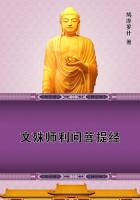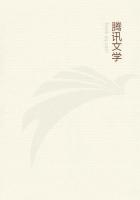If the categories are classified as substance, quality, place, acting or being acted on, relation, quantity, there must be three kinds of movement-of quality, of quantity, of place. There is no movement in respect of substance (because there is nothing contrary to substance), nor of relation (for it is possible that if one of two things in relation changes, the relative term which was true of the other thing ceases to be true, though this other does not change at all,-so that their movement is accidental), nor of agent and patient, or mover and moved, because there is no movement of movement nor generation of generation, nor, in general, change of change. For there might be movement of movement in two senses; (1)movement might be the subject moved, as a man is moved because he changes from pale to dark,-so that on this showing movement, too, may be either heated or cooled or change its place or increase. But this is impossible; for change is not a subject. Or (2) some other subject might change from change into some other form of existence (e.g. a man from disease into health). But this also is not possible except incidentally. For every movement is change from something into something. (And so are generation and destruction; only, these are changes into things opposed in certain ways while the other, movement, is into things opposed in another way.) A thing changes, then, at the same time from health into illness, and from this change itself into another. Clearly, then, if it has become ill, it will have changed into whatever may be the other change concerned (though it may be at rest), and, further, into a determinate change each time; and that new change will be from something definite into some other definite thing; therefore it will be the opposite change, that of growing well. We answer that this happens only incidentally;e.g. there is a change from the process of recollection to that of forgetting, only because that to which the process attaches is changing, now into a state of knowledge, now into one of ignorance.
Further, the process will go on to infinity, if there is to be change of change and coming to be of coming to be. What is true of the later, then, must be true of the earlier; e.g. if the simple coming to be was once coming to be, that which comes to be something was also once coming to be; therefore that which simply comes to be something was not yet in existence, but something which was coming to be coming to be something was already in existence. And this was once coming to be, so that at that time it was not yet coming to be something else. Now since of an infinite number of terms there is not a first, the first in this series will not exist, and therefore no following term exist. Nothing, then, can either come term wi to be or move or change. Further, that which is capable of a movement is also capable of the contrary movement and rest, and that which comes to be also ceases to be. Therefore that which is coming to be is ceasing to be when it has come to be coming to be; for it cannot cease to be as soon as it is coming to be coming to be, nor after it has come to be; for that which is ceasing to be must be. Further, there must be a matter underlying that which comes to be and changes. What will this be, then,-what is it that becomes movement or becoming, as body or soul is that which suffers alteration? And; again, what is it that they move into? For it must be the movement or becoming of something from something into something. How, then, can this condition be fulfilled? There can be no learning of learning, and therefore no becoming of becoming. Since there is not movement either of substance or of relation or of activity and passivity, it remains that movement is in respect of quality and quantity and place; for each of these admits of contrariety. By quality I mean not that which is in the substance (for even the differentia is a quality), but the passive quality, in virtue of which a thing is said to be acted on or to be incapable of being acted on. The immobile is either that which is wholly incapable of being moved, or that which is moved with difficulty in a long time or begins slowly, or that which is of a nature to be moved and can be moved but is not moved when and where and as it would naturally be moved. This alone among immobiles Idescribe as being at rest; for rest is contrary to movement, so that it must be a privation in that which is receptive of movement.
Things which are in one proximate place are together in place, and things which are in different places are apart: things whose extremes are together touch: that at which a changing thing, if it changes continuously according to its nature, naturally arrives before it arrives at the extreme into which it is changing, is between.
That which is most distant in a straight line is contrary in place.
That is successive which is after the beginning (the order being determined by position or form or in some other way) and has nothing of the same class between it and that which it succeeds, e.g. lines in the case of a line, units in that of a unit, or a house in that of a house. (There is nothing to prevent a thing of some other class from being between.) For the successive succeeds something and is something later; 'one' does not succeed 'two', nor the first day of the month the second. That which, being successive, touches, is contiguous.
(Since all change is between opposites, and these are either contraries or contradictories, and there is no middle term for contradictories, clearly that which is between is between contraries.)The continuous is a species of the contiguous. I call two things continuous when the limits of each, with which they touch and by which they are kept together, become one and the same, so that plainly the continuous is found in the things out of which a unity naturally arises in virtue of their contact. And plainly the successive is the first of these concepts (for the successive does not necessarily touch, but that which touches is successive; and if a thing is continuous, it touches, but if it touches, it is not necessarily continuous; and in things in which there is no touching, there is no organic unity); therefore a point is not the same as a unit; for contact belongs to points, but not to units, which have only succession; and there is something between two of the former, but not between two of the latter.

